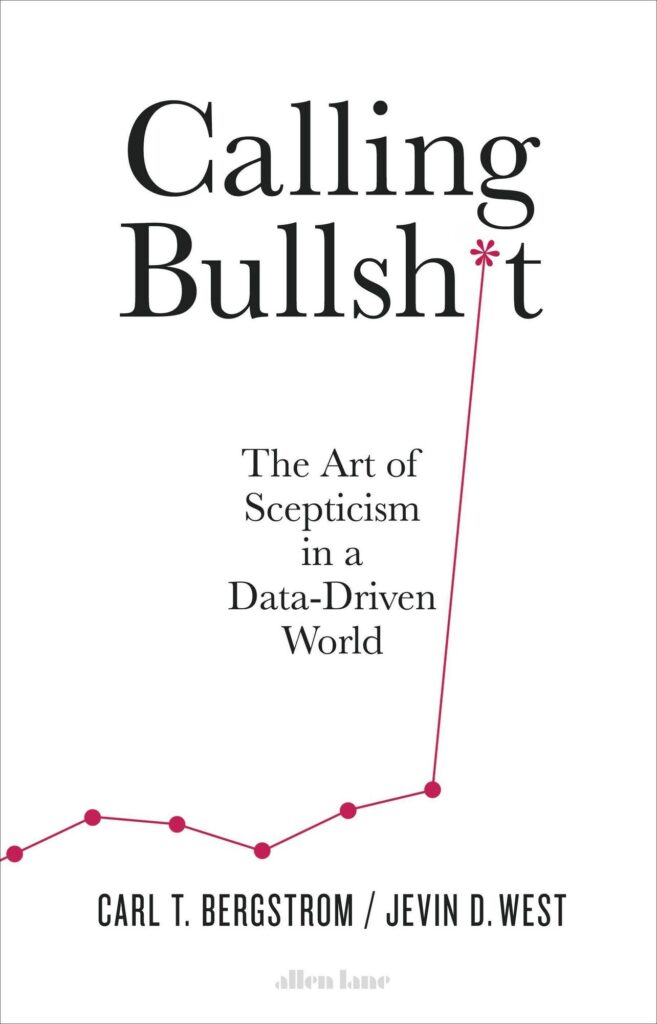
by Carl Bergstrom and Jevin West
Random House, New York (2020), 318 pages
“Bullshit involves language, statistical figures, data graphics, and other forms of presentation intended to persuade by impressing and overwhelming a reader or listener, with a blatant disregard for truth and logical coherence.”
For most of the book, the authors dig into how scientific results can be compromised at different levels (publications, press releases, social networks). They point at well-known fallacies in statistics and visualizations by providing some surprising examples (many from biology) that they have debunked and well documented by themselves.
In chapter 9, and this was for me the most important part, the authors discuss the primary aims of scientific research, its threats, and why scientific reasoning and scientific methodology still helps us understanding the world better. Especially in the context of the actual discussion on distrust in science (related to the pandemics) this chapter becomes even more relevant.
In their final two chapters the authors provide some general hints on how to identify and on how to refute (call) bullshit. They stress that refuting false claims should be done in a humble, respectful but nonetheless stringent way. Calling bullshit is not a matter of impressing your audience, but it is a moral imperative and at the end it makes ourselves as researchers “more vigilant , a little more thoughtful, a little more careful when sharing information.” (last sentence of the book).
Unfortunately, the book was written in pre-covid19 times. The bulk of actual misinformation and scientific misinterpretation, however, gets easily seizable with the help of this book.
The book is based on a course from the University of Washington, that the authors now have been teaching for some time. Elements from this course and transferred to other subjects suits well for all of our ETH courses and they will empower our students to think more critically on their role as a future researcher and societal policymaker.
I really enjoyed reading this book, written in a funny and personal style, and I can highly recommend it to anyone who is teaching science.
